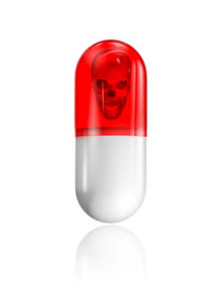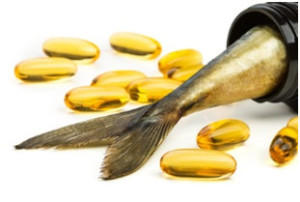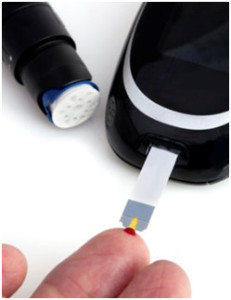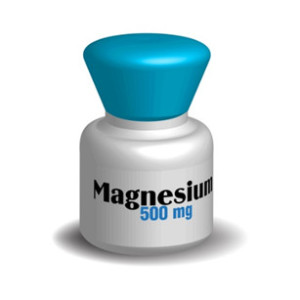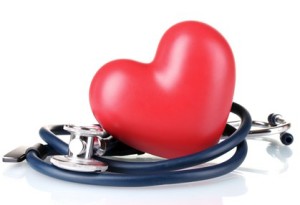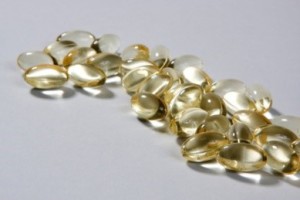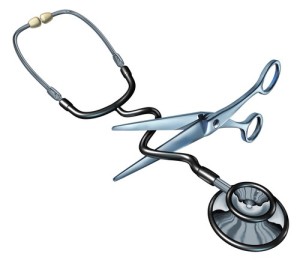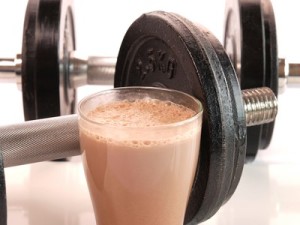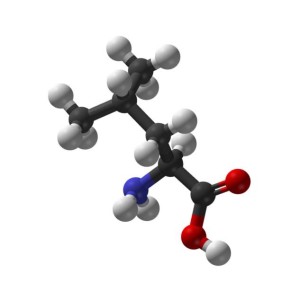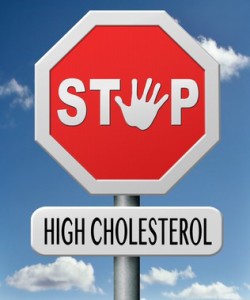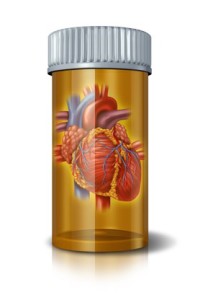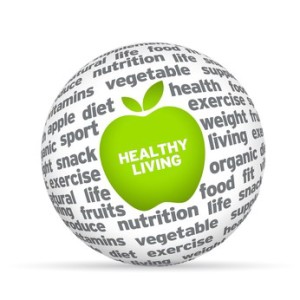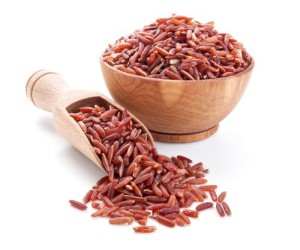Author: Dr. Stephen Chaney
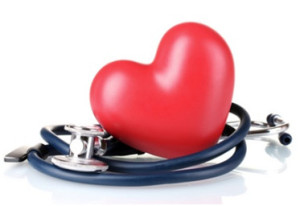 It’s so confusing. One week vitamins are going to reduce your heart disease risk and cancer risk. The next week they are worthless. They might even kill you. So when you saw the recent headlines suggesting that multivitamin-mineral supplement use might decrease heart disease risk in women, you probably weren’t sure what to think.
It’s so confusing. One week vitamins are going to reduce your heart disease risk and cancer risk. The next week they are worthless. They might even kill you. So when you saw the recent headlines suggesting that multivitamin-mineral supplement use might decrease heart disease risk in women, you probably weren’t sure what to think.
More to the point, you may be thinking “Why is it so hard to get this right? Why can’t scientists decide once and for all whether vitamins are beneficial or not?”
Perhaps, the best way to understand the significance of the present study is to look at the strengths and limitations of previous studies. Then we can start to gain perspective on why it is so difficult to come to a definitive conclusion about this very important question.
How Good Is The Evidence That Multivitamin Use Doesn’t Reduce Heart Disease Risk?
 Medical authorities are fond of telling you, with a great deal of confidence, that studies have conclusively proven multivitamin use does not decrease heart disease risk. However, in fact, that conclusion is based on only a few studies, and those studies have their limitations.
Medical authorities are fond of telling you, with a great deal of confidence, that studies have conclusively proven multivitamin use does not decrease heart disease risk. However, in fact, that conclusion is based on only a few studies, and those studies have their limitations.
For example, the Physician’s Health Study II (Sesso et al, JAMA, 308: 1751-1760, 2012) reported that use of a multivitamin-mineral supplement for 11 years did not decrease cardiovascular incidence or mortality. It was a double-blind, placebo controlled clinical study. That’s the best kind of study, so it would be tempting to consider the case closed.
However, this study looked at a very small segment of the population. The participants were all male, primarily non-Hispanic whites, well to do, highly educated and health conscious. It also turns out that the participants that were in the poorest health and had the poorest health habits tended to drop out of the study and were not included in the final data analysis.
That means that the vast majority of participants in the study were at low risk of heart disease and were eating relatively healthy diets. Those are the people who would be least likely to benefit from supplementation. In short, this study proved beyond a reasonable doubt that the people least likely to benefit from supplementation did, in fact, not benefit from supplementation.
The studies that medical authorities quote as proving their case for women have all looked at antioxidant supplements and cardiovascular disease. There are three double-blind, placebo controlled studies that have all come to the conclusion that antioxidant supplements do not decrease cardiovascular risk in women. Once again, it might be tempting to consider the case closed.
However, in two of those studies (Lee et al, JAMA, 294: 56-65, 2005; Cook et al, Archives of Internal Medicine, 167: 1610-1618, 2007) when they looked at the subset of women who were at high risk of cardiovascular disease (either because of age or pre-existing disease), antioxidant supplements significantly decreased the risk of cardiovascular events and cardiovascular deaths. In short, these studies showed that those people most likely to benefit from supplementation, did, in fact, benefit from supplementation.
Finally, medical authorities have chosen to completely ignore a recent study reporting that multivitamin use significantly decreased heart attack risk in women, especially if they had been using the multivitamins for 5 years or more (Rautiainen et al, American Journal of Clinical Nutrition, 92: 1251-1256, 2010). In short, previous studies have not conclusively proven much of anything except that it is really hard to get definitive answers to this kind of question.
Does Multivitamin Use Decrease Cardiovascular Disease Risk In Women?
 The current study (Bailey et al, Journal of Nutrition, 145: 572-580, 2015) compared multivitamin use in 8678 adults(65% women) 40 years or older, from the USDA’s NHANES III database and compared it with cardiovascular death reports in the National Death Index 18 years later.
The current study (Bailey et al, Journal of Nutrition, 145: 572-580, 2015) compared multivitamin use in 8678 adults(65% women) 40 years or older, from the USDA’s NHANES III database and compared it with cardiovascular death reports in the National Death Index 18 years later.
At the time of the NHANES III study, 45% of the adults surveyed had used some kind of supplement within the past 30 days. When the researchers broke the data down further:
- 21% were using multivitamin-mineral supplements (3 or more vitamins and 1 or more minerals)
- 14% were using multivitamin supplements (3 or more vitamins, no minerals).
- Among multivitamin-mineral and multivitamin supplement users, only 46% had been using them for 3 years or more.
When they compared supplement usage with cardiovascular deaths 18 years later, the results were as follows:
- When they asked if multivitamin-mineral or multivitamin use at the beginning of the study affected cardiovascular mortality 18 years later, the answer was a clear no.
- When they looked at women, use of a multivitamin-mineral supplement for 3 years or more was associated with a 35% decreased risk of cardiovascular mortality.
- However, they did not find any cardiovascular benefit from long term use of a multivitamin supplement alone for women. From this, they concluded that the beneficial effects of the multivitamin-mineral supplement came from one of the minerals, most likely magnesium or calcium.
- There was a slight hint that multivitamin use might be beneficial for men, but the number of cardiovascular deaths in that group was too small for the results to be statistically significant.
What Does This Study Mean?
This study suggests that long term use of a multivitamin-mineral supplement may decrease the risk of cardiovascular disease deaths in women. Whether long term multivitamin use also reduces risk of cardiovascular disease in men is an open question. This study is consistent with another recent study looking at multivitamin use in women (Rautiainen et al, American Journal of Clinical Nutrition, 92: 1251-1256, 2010). However, these studies are just a piece of the puzzle. It will take time and more studies before we will really be able to definitively say whether or not multivitamin use can decrease the risk of heart disease, or any other disease.
How Can You Reduce Your Heart Disease Risk?
The surest way to reduce your risk of heart disease is to develop a heart healthy lifestyle.
 Lose weight and/or maintain ideal body weight. Overweight and obesity dramatically increase all of the major risk factors for heart disease – LDL cholesterol, triglycerides, diabetes, hypertension and inflammation.
Lose weight and/or maintain ideal body weight. Overweight and obesity dramatically increase all of the major risk factors for heart disease – LDL cholesterol, triglycerides, diabetes, hypertension and inflammation.
- Exercise for more than 30 minutes – 3 times or more/week. Regular exercise reduces the risk of heart disease by 30-40%.
- Follow a diet low in saturated fat and trans-fat (substitute monounsaturated fats like olive oil and omega-3 fats); low in sugars and artificial sweeteners; and high in fiber, whole grains, legumes, fruits, vegetables, and fish.
- Work with your physician to control predisposing diseases such as diabetes and hypertension.
What about supplementation? What role does it play in a heart healthy lifestyle? At present it’s pretty clear that the scientific community cannot definitively prove whether supplementation reduces the risk of heart disease or not. All the available evidence suggests that supplementation is most likely to prove beneficial for those who are at highest risk for heart disease and/or are most likely to be deficient in key nutrients – either because of poor diet or genetic variations that increase nutrient requirements.
In the best of all possible worlds we would know who was at high risk for heart disease and who was deficient in key nutrients. We would know who would benefit from supplements and who would not, but we don’t live in the best of all possible worlds.
- Most people don’t know they are at risk for heart disease until it is too late. For far too many people the first symptom of heart disease is sudden death.
- Genetics can greatly increase the need for key nutrients, and most people are completely unaware of those genetic predispositions until it is too late. In the future, we may be able to design genetic tests to determine individual nutritional requirements with precision, but we are decades away from that Utopian age at present.
- Finally, many people are either blissfully unaware how unhealthy their diet is, or they just don’t want to do anything about it.
For all of the reasons above, I recommend a balanced supplementation program as part of a heart healthy lifestyle. The supplements most likely to be beneficial are a multivitamin-mineral supplement, antioxidants, omega-3s, and B vitamins. I have covered the evidence for the role of each of these nutrients in preserving heart health in previous issues of “Health Tips From the Professor”. Of course, I do not recommend supplementation as an alternative to a heart healthy lifestyle. Taking a multivitamin along with your Big Mac is probably not going to do much for your heart health.
The Bottom Line
- A recent study reported that women who used a multivitamin – mineral supplement for 3 years or more decreased their risk of dying from heart disease over the next 18 years by 35%. The men in the study may have received some benefit from multivitamin – mineral supplementation, but the numbers were not large enough to be statistically significant.
- This study is fully consistent with the results of a previous study with women. However, when we look at all of the available studies it is not possible to definitively conclude whether supplementation decreases the risk of heart disease or not.
- All of the available evidence suggests that supplementation is most likely to be beneficial for those people who are at highest risk of heart disease and/or are most likely to be deficient in key nutrients.
- In the best of all possible worlds we would know who was at high risk for heart disease and who was deficient in key nutrients. We would know who would benefit from supplements and who would not, but we don’t live in the best of all possible worlds.
- Most people don’t know they are at risk for heart disease until it is too late. For far too many people the first symptom of heart disease is sudden death.
- Genetics can greatly increase the need for key nutrients, and most people are completely unaware of those genetic predispositions until it is too late. In the future, we may be able to design genetic tests to determine individual nutritional requirements with precision, but we are decades away from that Utopian age at present.
- Finally many people are either blissfully unaware how unhealthy their diet is, or they just don’t want to do anything about it.
- For the reasons above, I recommend a balanced supplementation program as part of a heart healthy lifestyle. The supplements most likely to be beneficial are a multivitamin-mineral supplement, antioxidants, omega-3s, and B vitamins.
- Of course,I do not recommend supplementation as an alternative to a heart healthy lifestyle. Taking a multivitamin along with your Big Mac is probably not going to do much for your heart health.
These statements have not been evaluated by the Food and Drug Administration. This information is not intended to diagnose, treat, cure or prevent any disease.


